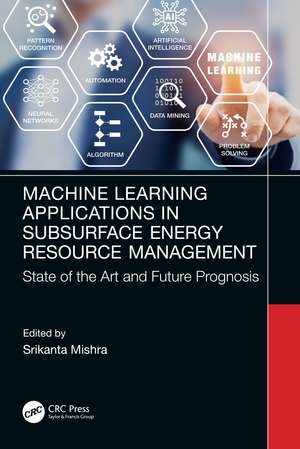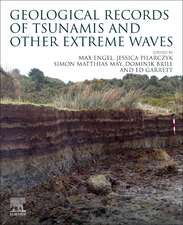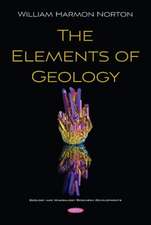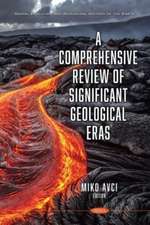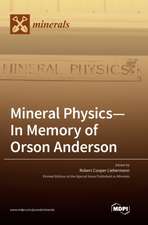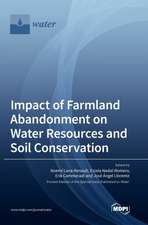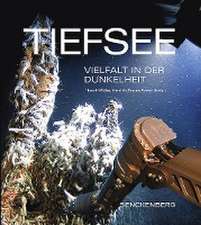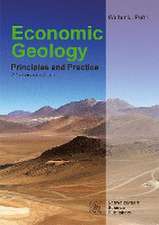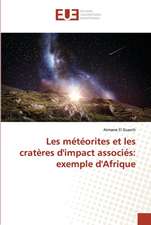Machine Learning Applications in Subsurface Energy Resource Management: State of the Art and Future Prognosis
Editat de Srikanta Mishraen Limba Engleză Hardback – 27 dec 2022
- Covers ML applications across multiple application domains (reservoir characterization, drilling, production, reservoir modeling, and predictive maintenance)
- Offers a variety of perspectives from authors representing operating companies, universities, and research organizations
- Provides an array of case studies illustrating the latest applications of several ML techniques
- Includes a literature review and future outlook for each application domain
Preț: 648.22 lei
Preț vechi: 941.01 lei
-31% Nou
Puncte Express: 972
Preț estimativ în valută:
124.04€ • 135.16$ • 104.52£
124.04€ • 135.16$ • 104.52£
Carte tipărită la comandă
Livrare economică 23 aprilie-07 mai
Preluare comenzi: 021 569.72.76
Specificații
ISBN-13: 9781032074528
ISBN-10: 1032074523
Pagini: 378
Ilustrații: 29 Tables, black and white; 100 Line drawings, black and white; 69 Halftones, black and white; 169 Illustrations, black and white
Dimensiuni: 152 x 229 x 25 mm
Greutate: 0.64 kg
Ediția:1
Editura: CRC Press
Colecția CRC Press
ISBN-10: 1032074523
Pagini: 378
Ilustrații: 29 Tables, black and white; 100 Line drawings, black and white; 69 Halftones, black and white; 169 Illustrations, black and white
Dimensiuni: 152 x 229 x 25 mm
Greutate: 0.64 kg
Ediția:1
Editura: CRC Press
Colecția CRC Press
Public țintă
Academic and Professional Practice & DevelopmentNotă biografică
Dr. Srikanta Mishra is Senior Research Leader and Technical Director for Geo-energy Resource Modeling and Analytics at Battelle Memorial Institute, the world’s largest independent contract R&D organization. He is nationally and internationally recognized for his expertise in developing and communicating physics-based and data-driven predictive models for subsurface resource management. Dr. Mishra currently serves as the Technical Lead of the SMART (Science Informed Machine Learning for Accelerating Real-time Decisions for Subsurface applications) initiative, organized by the US Department of Energy and involving multiple national laboratories and universities. He was a recipient of the Society of Petroleum Engineers (SPE) Distinguished Member Award in 2021, and also served as a Global Distinguished Lecturer on Big Data Analytics for SPE during 2018–19 and received the 2022 SPE Data Science and Engineering Analytics Award.
Cuprins
Section I: Introduction, 1. Machine Learning Applications in Subsurface Energy Resource Management: State of the Art, 2. Solving Problems with Data Science, Section II: Reservoir Characterization Applications, 3. Machine Learning-Aided Characterization Using Geophysical Data Modalities, 4. Machine Learning to Discover, Characterize, and Produce Geothermal Energy, Section III: Drilling Operations Applications, 5. Real-Time Drilling and Completion Analytics: From Cloud Computing to Edge Computing and Their Machine Learning Applications, 6. Using Machine Learning to Improve Drilling of Unconventional Resources, Section IV: Production Data Analysis Applications, 7. Machine Learning Assisted Production Data Filtering and Decline Curve Analysis in Unconventional Plays, 8. Hybrid Data-Driven and Physics-Informed Reservoir Modeling for Unconventional Reservoirs, 9. Role of Analytics in Extracting Data-Driven Models from Reservoir Surveillance, 10. Machine Learning Assisted Forecasting of Reservoir Performance, Section V: Reservoir Modeling Applications, 11. An Efficient Deep Learning Based Workflow Incorporating a Reduced Physics Model for Drainage Volume Visualization in Unconventional Reservoirs, 12. Reservoir Modeling Using Fast Predictive Machine Learning Algorithms for Geological Carbon Storage, 13. Physics-Embedded Machine Learning for Modeling and Optimization of Mature Fields, 14. Deep Neural Network Surrogate Flow Models for History Matching and Uncertainty Quantification, 15. Generalizable Field Development Optimization Using Deep Reinforcement Learning with Field Examples, Section VI: Predictive Maintenance Applications, 16. Case Studies Involving Machine Learning for Predictive Maintenance in Oil and Gas Production Operations, 17. Machine Learning for Multiphase Flow Metering, Section VII: Summary and Future Outlook, 18. Machine Learning Applications in Subsurface Energy Resource Management: Future Prognosis
Descriere
Machine Learning Applications in Subsurface Energy Resource Management presents a current snapshot of the state of the art and future outlook for machine learning applications in subsurface energy resource management (e.g., oil and gas, geologic carbon sequestration, geothermal energy).
